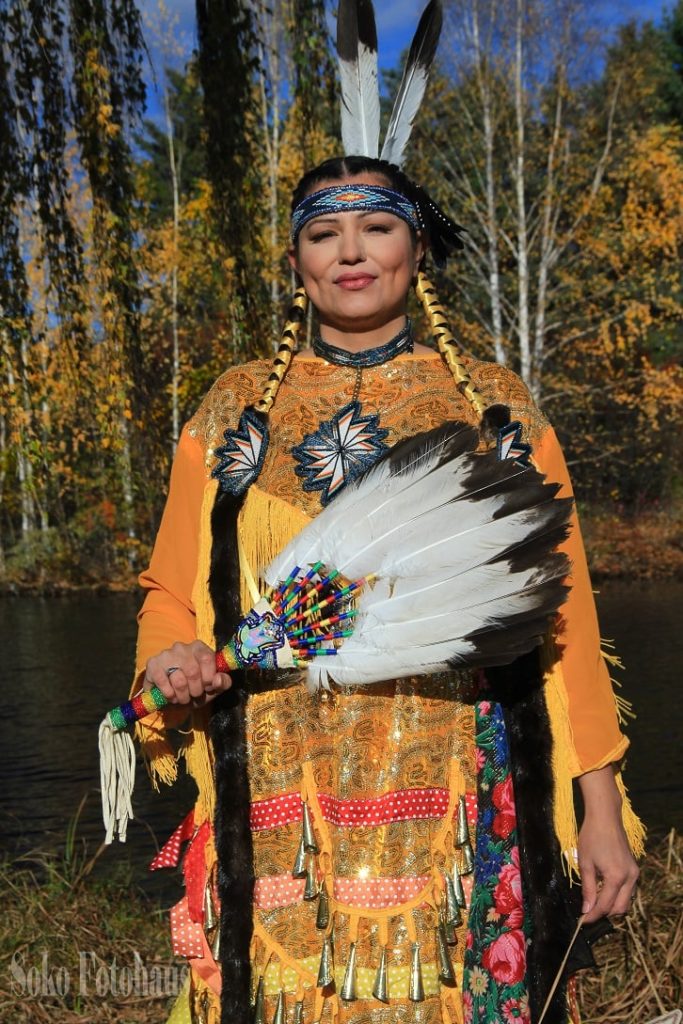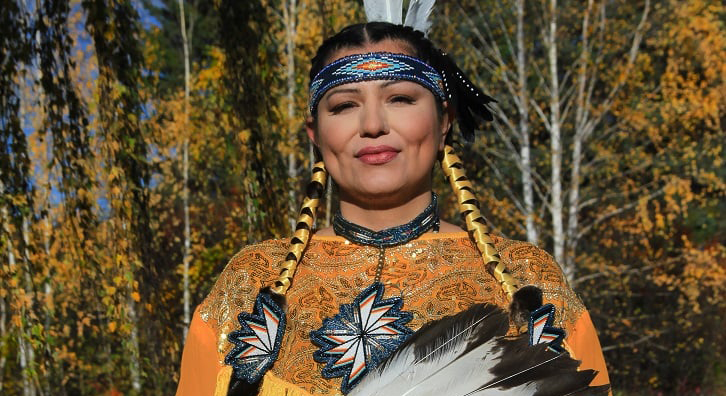By Chevi Rabbit, Local Journalism Initiative Reporter
(ANNews) – Katherine Swampy is a Councillor of the Samson Cree Nation, a human rights advocate and a provincial advocate for Missing and Murdered Indigenous Women. She is a role model in her community and beyond who demonstrates that challenges and trauma can be overcome and that one voice can make a big difference.
Alberta Native News sat down with Katherine Swampy to discuss her views on repatriation, powwows and advocacy.

Human Rights advocate Councillor Katherine Swampy. Photo by Soko Fotohaus.
Tell us about your childhood.
I grew up in Samson Cree Nation, and although we struggled with poverty and faced many challenges, I was blessed with a very traditional and culturally involved family. My mom took us to feasts, tea dances, ghost dances, and ceremonies every other week. It’s not as active nowadays as it used to be; there are regular ceremonies, but not as many.
Can you speak about your education and the struggles of raising and managing a young family.
I’m in my Ph.D. program for public policy administration, and I have raised eleven children, five biological and I also kept my nieces, nephews, and brothers-in-law. I only have four at home now, many have left the nest. I love all of the children very much. It was a difficult journey balancing education and children, especially when the pandemic hit. I felt burnt out, and I firmly believe that things don’t need to be perfect, but they must be done.
What does repatriation mean to you?
Repatriation is our Indigenous peoples taking back our traditions and culture. You don’t need to be raised with the culture, but you’re taking it upon yourself to learn. Genocide and colonialism set out to assimilate Indigenous peoples and remove our language, culture, and traditions, so it is up to the survivors to re-learn what was stolen from us. If you have one drop of Indigenous blood in you, you are responsible to your ancestors for learning your heritage and repatriating your language, culture, and traditions. Many of our elders are so sacred that we must absorb the knowledge they seek to share while we still have them – offer protocol and learn.
What is the significance of being a powwow family?
As a powwow mom, I would consider all dancers my family; we often share and help each other out at powwows. I know many people can be shy, and some are distant but most want to help each other. We feed each other, sometimes we house each other; we consider other dancers, some we may have met for the first time as a family. We look out for one another.
How do you encourage others to dance?
I was listening to an elder one day; she said we have to share what knowledge we have. I remember thinking that I cannot share, who am I to share anything? And then I realized that even if I wasn’t the most knowledgeable, I knew some things, and I could share what little I did know. For example, I know how to sew, and I know how to dance, and not everyone does. So around ten years ago, I started teaching youth and anyone who wanted to learn. It was my little way to keep dancing alive.
Can you talk about being an MMIW advocate?
I have family that has been murdered, Cheryl, Debbie, Trisheena, Warleen, Jonathan, Justin, and many friends, Dawns, Chantel, Savanna, and more. And I never meant to be an advocate for MMIWG and Men. I was so angry and hurt by the many losses, and I went to court to support families because I knew what it was like sitting alone in a courthouse. I want them to feel supported because it’s a challenging situation. When I speak about MMIWG, it hurts; I’m remembering the pain of losses and sharing that pain with others. I want Justice for our loved ones, and I’d like it to stop. I want us to be safe.
How can non-Indigenous people become better advocates?
Non-indigenous voices are listened to, and it has become apparent that we are just muffled out and often ignored. We need allies and supporters; they can vote for leaders who want to help Indigenous peoples and push for policies that



Be the first to comment on "Samson Cree Nation Councillor Katherine Swampy discusses powwows and advocacy"